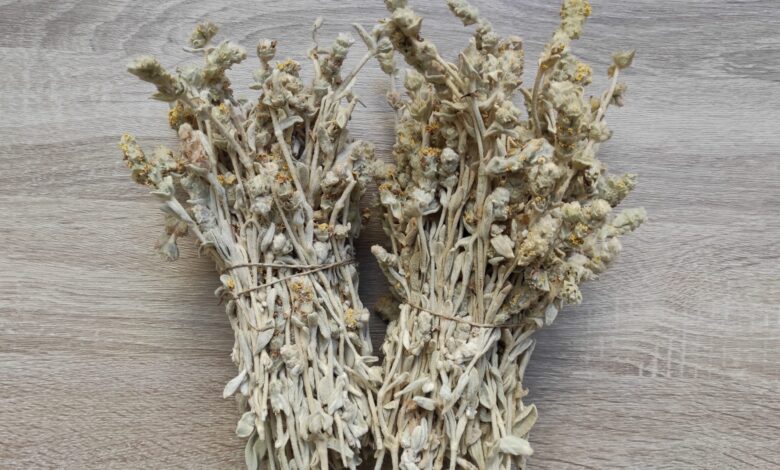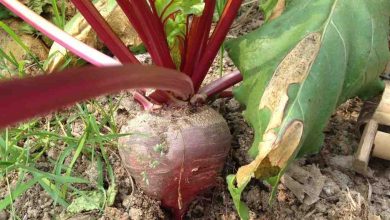Mountain tea (Sideritis Syriaca): anti-inflammatory, antioxidant and neuroprotective

Gastrointestinal problems, poor memory, edema, bronchitis or flu are some of the ailments that mountain tea or cat’s tail can help to improve in a natural way. Would you like to know more about the properties of this medicinal plant and how it is used?
In this article we will discover the most relevant data about this medicinal plant and the different ways of using it, as well as the possible contraindications.
What is mountain tea?
This medicinal plant is very interesting for the uses and applications it has.
The genus Sideritis , belonging to the Lamiaceae (Labiatae) family, comprises approximately 150 species distributed along the European, African and part of the Asian Mediterranean slopes, extending from the Canary Islands and Madeira to the Caucasus.
Within this genus, the species Sideritis angustifolia , Sideritis clandestina , Sideritis hyssopifolia , Sideritis incana , Sideritis raeseri , Sideritis scardica , Sideritis syriaca and Sideritis tragoriganum, among others, stand out.
Some species of this genus are popularly known in Spain as cat’s tail, zahareña, terral grass or almorrana grass . In Turkey and Greece, where they are traditionally used to prepare infusions, they are popularly called » mountain tea «, alluding to their geographical location on high rocky slopes.
The species of the genus Sideritis are widely used in the Mediterranean area in popular medicine for their digestive, antimicrobial, anti-inflammatory and antioxidant properties, among others.
Bioactive components of mountain tea
The part used in traditional medicine is the flowery top of the Sideritis , which contains as the most prominent active chemical principles: terpenes, flavonoids, essential oils, iridoids, coumarins, lignans, aglycones and sterols , among others.
The Sideritis Tragoriganum species , in particular, possesses a flavone, 5-O-desmethylnobiletin, with anti-inflammatory properties.
Diterpenes, flavonoids and essential oil are found in almost all species and are the main compounds responsible for the pharmacological activity observed in vivo and in vitro.
The diterpenes are one of the most important pharmacological interests in these medicinal plants, as these compounds provide significant natural antioxidant effects to counteract oxidative damage and preventing disorders of dementia mediated by this factor. Andalusol, conchitriol, foliol, lagascatriol, linearol and sidol are some diterpenoids that have been isolated from species of the genus Sideritis .
Recent studies demonstrate these activities and support both its traditional use and possible new therapeutic applications of mountain tea .
Medicinal uses and benefits of mountain tea
The infusion of mountain tea , prepared from the aerial parts of the plant, is traditionally used against gastrointestinal disorders such as stomach pain, indigestion and flatulence; also to treat the symptoms of the common cold including fever, flu, sore throat and bronchitis, as well as a tonic and diuretic .
Sideritis species have historically been used in the Mediterranean basin and Balkan countries as teas for food, flavoring agents, and in popular medicine as anti-inflammatory, antitussive, antiulcerative, antimicrobial, vulvar, antioxidant, antispasmodic, anticonvulsant, analgesic and carminative agents. Another popular use is external, the infusion applied in the form of compresses.
Laboratory studies suggest that cattail has an anti-inflammatory and antimicrobial action , as well as an effect on protecting the stomach and reducing intestinal muscle contractions.
Flavone 5-O-desmethylnobiletin from Sideritis Tragoriganum reduced edema formation , cell infiltration and tissue damage in induced inflammation in laboratory animals.
In addition, Sideritis species prepared as tea infusions are popularly known for improving memory and , in general, cognitive abilities (language, attention, planning, reasoning …).
The neuroprotective activity , against oxidative stress, of the diterpenes andalusol, conchitriol, lagascatriol, foliol, linearol and sidol isolated from species of the genus Sideritis has been scientifically demonstrated .
Neurodegenerative diseases such as Alzheimer’s disease, Parkinson’s disease, Amyotrophic Lateral Sclerosis and Huntington’s disease are chronic processes characterized by the progressive loss of neurons and the consequent alteration of motor, sensory and cognitive functions, being implicated oxidative stress in the pathogenesis of these diseases. The use of exogenous antioxidants is presented as one of the most promising therapeutic strategiesto reduce or neutralize oxidative damage caused by reactive oxygen species. Recent research has shown the antioxidant capacity of various compounds of natural origin, among them the group of diterpenes, active pharmacological components present in the species of the genus Sideritis, being relevant .
Indications for use of mountain tea
The Committee for Herbal Medicines of the European Medicines Agency (EMA) approved in 2016 the use of aerial parts of plants belonging to the genus Sideritis for relief of cough associated with colds (Indication 1) and for relief of discomfort Mild gastrointestinal (Indication 2) based on long-standing traditional use. Likewise, it dictates the guidelines for the preparation, use, dosage, duration of treatment, contraindications, warnings and precautions for infusions of the plants of the genus Sideritis.
The EMA allows the oral use of the herbal infusion for adults and the elderly. Use in children and adolescents under 18 years of age is not recommended.
- Instructions for its preparation and use are as follows:
Herbal tea: 2-4 g of the crushed herb in 150-200 ml of water as an herbal infusion, 2-3 times a day.
Daily dose of up to 12 g.
In addition, regarding the duration of treatment for each indication, they recommend:
- Indication 1
If symptoms persist for more than 1 week, while using the drug, a doctor or qualified healthcare professional should be consulted.
- Indication 2
If symptoms persist for more than 2 weeks while using the drug, a physician or qualified healthcare professional should be consulted.
Contraindications and precautions for the use of mountain tobacco
The Committee for Herbal Medicines of the European Medicines Agency establishes hypersensitivity to the active principle and to other plants of the Lamiaceae (Labiatae) family as the main contraindication.
In addition, it mentions in the warnings and precautions that the use in children and adolescents under 18 years of age has not been established due to a lack of adequate data and that safety during pregnancy and lactation has not been established, therefore In the absence of sufficient data, use during pregnancy and lactation is not recommended. No data are available on the impairment of fertility.
Finally, they recommend that if symptoms worsen while using the infusion, a physician or qualified physician should be consulted.
Consulted bibliography
European Union herbal monograph on Sideritis scardica Griseb .; Clandestine sideritis (Bory & Chaub.) Hayek; Sideritis raeseri Boiss. & Heldr .; Sideritis syriaca L., herba
European Medicines Agency (EMA) – Committee on Herbal Medicinal Products (HMPC). European Union herbal monograph on Sideritis
https://www.ema.europa.eu/en/medicines/herbal/sideritis-herba
Botanical and pharmacological aspects of the genus Sideritis
Journal of Fitoterapia 2009; 9 (2): 133-145.
https://www.fitoterapia.net/buscador_avanzado/revistas.html?accion=busqueda&existe_cond=no&texto1=Rabo+de+gato&campo1=&condicion=&texto2=&campo2=&condicion2=&texto3=&campo3=&condicion3=&hasta4des&campo=
Anti-inflammatory activity of 5-O-demethylnobiletin, a polymethoxyflavone isolated from Sideritis tragoriganum.
Med Plant. 2006 Feb; 72 (2): 136-42.
https://www.ncbi.nlm.nih.gov/pubmed/16491449
Sideritis spp .: Uses, chemical composition and pharmacological activities — A review
Journal of Ethnopharmacology, Volume 135, Issue 2, May 2011, 209-225
https://www.sciencedirect.com/science/article/pii/S0378874111001498
Nrf2-dependent neuroprotective activity of diterpenoids isolated from Sideritis spp
Journal of Ethnopharmacology, Volume 147, Issue 3, June 2013, 645-652
Study of the neuroprotective activity of isolated diterpenes of the genus Sideritis
Annals of the Royal National Academy of Pharmacy, Vol. 80, No. 2 (2014)
http://anales.ranf.com/2014/vol2/09_1477.htm
Traditional uses, chemical composition and biological activities of Sideritis raeseri Boiss. & Heldr.
Journal of the Science of Food and Agriculture , Volume 97, Issue 2, January 2017
https://onlinelibrary.wiley.com/doi/abs/10.1002/jsfa.7867

![Photo of The [12 Steps] You Must Follow to Grow Watermelons Successfully](https://www.complete-gardening.com/wp-content/uploads/2022/08/the-12-steps-you-must-follow-to-grow-watermelons-successfully-390x220.jpg)


